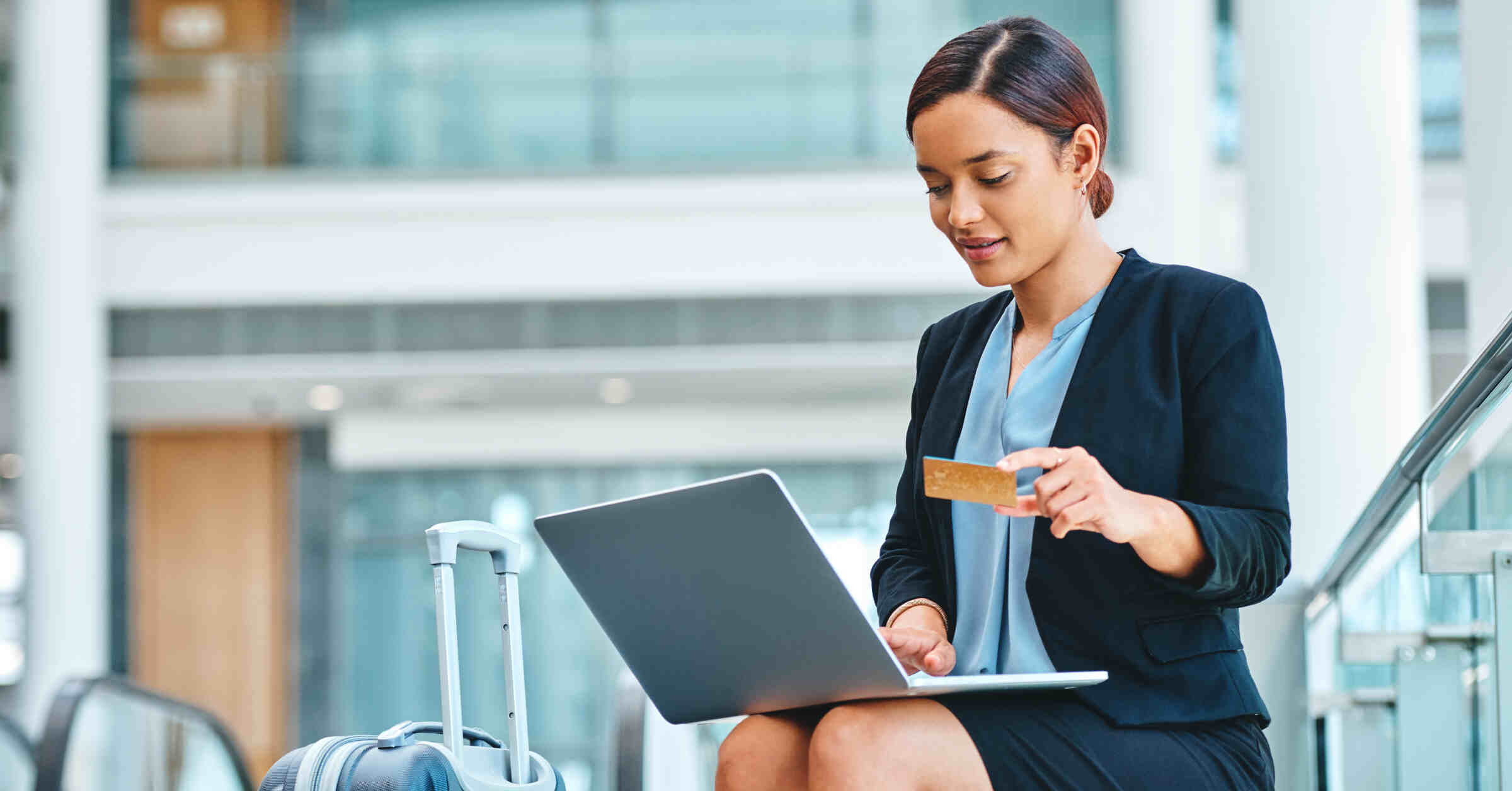Personal Loans
Customized financing to consolidate high-interest debt and unlock financial flexibility.
Business loans
Tailored commercial financing that supports all your business needs to help you grow quickly.
Tailored for entrepreneurs that want to establish additional active and passive income streams.
Customized financing to consolidate high-interest debt or fund major purchases or expenses.
About BHG
Programs
Sign in
How Much Credit Card Debt Is Too Much?

Table of Contents
- What is considered too much credit card debt?
- How does high credit card debt affect your financial health?
- What are the warning signs that you have too much credit card debt?
- How to manage and reduce excessive credit card debt
- Can getting a personal loan with BHG help reduce credit card debt?
- How much credit card debt is too much FAQ
- BHG supports your financial health, every step of the way
With interest rates hovering near all-time highs, credit cards remain one of the most expensive ways to borrow money. At the same time, carrying a healthy balance on your cards is generally regarded as a responsible financial strategy because it helps you establish and maintain a credit history.
So, when does credit card debt become too much? Below, we’ll help you determine whether your credit card debt is too high and suggest ways you can lower it for better borrowing power.
Key Considerations
- Credit card debt isn’t inherently bad, but it can quickly become problematic if you’re not careful.
- To determine whether you’re carrying too much debt, look at your credit utilization ratio and assess your ability to pay off your balances each month.
- Some of the best ways for managing credit card debt include using a personal loan for debt consolidation, leveraging the debt snowball or avalanche methods to pay it off, and exploring balance transfer credit cards.
What is considered too much credit card debt?
There isn’t one simple answer to how much credit card debt is too much. While the average credit card balance per consumer is $6,580, according to TransUnion, what feels manageable varies per person, their income level, and amounts of other debt. However, there are some guidelines that can help you gauge your level of debt.
A key consideration is whether you can pay off your full balance each month. If you can’t easily do so, debt can quickly accumulate due to high, compounding interest, making it harder to repay or manage responsibly.
Another factor is your credit utilization ratio—the amount of revolving credit you’re using compared to your total available credit. It’s generally recommended to keep your utilization below 30%, but lower is better, according to FICO. A higher credit utilization ratio can also negatively impact your credit score.
Tip: If you have high credit card debt across several cards, combining your balances into one loan can help you pay down debt. BHG Financial offers personal loans for credit card consolidation that can help lower credit utilization and manage debt.
How does high credit card debt affect your financial health?
Having too much credit card debt can negatively impact your financial health in several ways.
- Credit score reductions: Too much credit card debt can negatively hurt your credit score because it often increases your utilization ratio and debt-to-income ratio. Missed payments also significantly impact your score.
- Continuous debt cycle: High interest charges make it hard to pay down the principal balance. If you can only afford the minimum payment, your balance will keep growing and trap you in a cycle of debt.
- Borrowing challenges: As your debt rises, you may find it more difficult to borrow money, especially if it has lowered your credit score or increased your debt-to-income ratio.
- Limited financial flexibility: When a large portion of your income goes toward credit card payments, you have less money for other things you need or want. This can make it hard to handle unexpected expenses or save for other important goals.
What are the warning signs that you have too much credit card debt?
There are several warning signs that indicate you may have excessive credit card debt, such as:
- You can only make minimum payments: If you’re struggling to afford the minimum payments on the cards each month, this could be a sign that you’re carrying too much debt. In this scenario, your remaining balance will continue to accrue costly interest charges, increasing your debt and the time it will take to pay it off.
- Your credit score drops: Carrying too much credit card debt month-to-month can negatively impact your credit score, especially if you are nearing the spending limit. Reaching your credit limit will increase your credit utilization ratio, and in turn, lower your score.
- Your financial situation is suffering: Any strain put on your monthly budget can make it harder to meet other financial obligations. If card payments are preventing you from saving for emergencies, retirement, or other expenses, you might have too much debt.
See your offer † real fast
Just a few easy steps to get prequalified!
† This is not a guaranteed offer of credit and is subject to credit approval.
How to manage and reduce excessive credit card debt
There are several ways to reduce credit card debt, including:
1. Debt consolidation
Debt consolidation is a common solution for reducing and managing credit card debt, especially if your balances are excessive. Consolidating your debt with a personal loan, for example, allows you to pay off higher credit card balances, leaving you with a single payment and a fixed interest rate. In some cases, these rates are lower than the ones attached to your credit cards.
Personal loans for debt consolidation can generally range from $1,000 to $100,000; however, BHG Financial offers debt consolidation loans up to $250,000.1
2. Balance transfer credit cards
You can move credit card balances from other cards to a new balance transfer card with a lower introductory rate. These cards can save you a significant amount of interest, as long as you pay down the balance within the allotted promotional timeline. Just be sure your amount of debt falls within the new card's credit limit that you’re approved for, as this limit can be lower than what you could get with a personal loan. You might also have to pay a fee when moving balances from one card to another.
3. Debt snowball or avalanche method
The debt snowball and avalanche methods are two popular strategies for eliminating credit card debt by consistently chipping away at your balances without adding another credit product to your portfolio. The snowball method involves paying off your smallest debt first for quick wins, while the avalanche method focuses on tackling the debts with the highest interest rates first to help you save money in the long run.
However, you’ll need to commit to this payment schedule and stick to a budget to avoid taking on more debt in the process.
Can getting a personal loan with BHG help reduce credit card debt?
Personal loans tend to have lower interest rates than credit cards, which you can leverage to reduce debt strategically. Borrowers with good credit may be able to secure a lower interest rate than they're currently paying on their existing credit cards. The lower rate could unlock extra room in your budget to add to your loan payments. This also helps you save significantly on interest over time.
|
|
Balance |
APR |
Monthly payment |
Interest paid over 7 years1 |
|---|---|---|---|---|
|
High-interest credit card(s) |
$40,000 |
22.30% |
$944 |
$39,335 |

|
$40,000 |
12.44% |
$716 |
$20,107 |
|
|
|
|
Estimated savings on credit card interest with BHG |
$19,228* |
Advertised rates are subject to change without notice.
Monthly payment is a representative example and for illustrative purposes only.
* Potential savings based off comparing repayment of a $40,000 balance over 7 years on both a credit card with a minimum monthly payment of $944 and APR of 22.30% (average consumer credit card APR per The Federal Reserve as of 01/08/26), with the assumption no additional draws on the line are made during this time; and a BHG Personal Loan with a minimum monthly payment of $716 and minimum available APR for a 7-year term, which is 12.44% as of 01/16/2026 and includes an origination fee.
A fixed-rate personal loan, like the one available with BHG, offers more stability and predictability than a variable-rate solution. Unlike most credit cards, a fixed personal loan locks in your APR so your payments never change throughout the life of the loan.
Plus, consolidating credit card debt using a personal loan combines multiple balances into a single, more manageable monthly payment. Tracking single payments makes it easier to stick to a budget.
How much credit card debt is too much FAQ
What percentage of my income should go toward credit card payments?
A general rule of thumb is that your total debt payments, including credit cards, should be no more than 36% of your monthly income. However, the ideal percentage depends on your individual finances and goals; higher earners may be able to manage larger credit card payments.
How does my credit utilization ratio affect my credit score?
Your credit utilization ratio is one of the main data points credit bureaus use to calculate your credit score, and it often accounts for 30% of your score. A higher utilization ratio (using a large percentage of your available credit) can lower your score, signaling to lenders that you may be over reliant on credit. Keeping your score low is generally recommended for good credit.
How does your debt-to-income ratio impact your financial situation?
Lenders use your debt-to-income ratio (DTI) to assess your ability to manage monthly payments and repay borrowed money. A lower DTI typically indicates you have a healthy balance of debt and income, which is important for your overall financial health. A lower ratio can also increase your borrowing power; however, higher earners may be able to borrow money with a higher DTI.
Can high credit card debt lead to bankruptcy?
Credit card debt can be a contributing factor to bankruptcy if your debt becomes overwhelming and you cannot afford the minimum payments. If you’ve missed several payments in a row, it could trigger calls from debt collectors.
See your offer † real fast
Just a few easy steps to get prequalified!
† This is not a guaranteed offer of credit and is subject to credit approval.
BHG supports your financial health, every step of the way
At BHG Financial, we believe financing should fit seamlessly into your life and goals. That’s why we offer personal loans tailored to your needs, with amounts up to $250,0001 and flexible terms of up to 10 years.1,2
Plus, you’ll enjoy dedicated, U.S.-based concierge service that works around your schedule—because your time is valuable. Ready to see what’s possible? Use our quick and easy payment estimator to get your personalized loan estimate in just seconds.
Not all solutions, loan amounts, rates or terms are available in all states.
1 Terms subject to credit approval upon completion of an application. Loan sizes, interest rates, and loan terms vary based on the applicant's credit profile.
2 Personal Loan Repayment Example: A $60,000 personal loan with a 7-year term and an APR of 17.06% would require 84 monthly payments of $1,191.38.
Annual percentage rates (APRs) for BHG Financial personal loans range from 8.72% to 28.89%, with terms from 3 to 10 years.
Consumer loans funded by Pinnacle Bank, a Tennessee bank, or County Bank. Equal Housing Lenders.
No application fees, commitment, or impact on personal credit to estimate your payment.
For California Residents: BHG Financial loans made or arranged pursuant to California Financing Law license - Number 603G493.